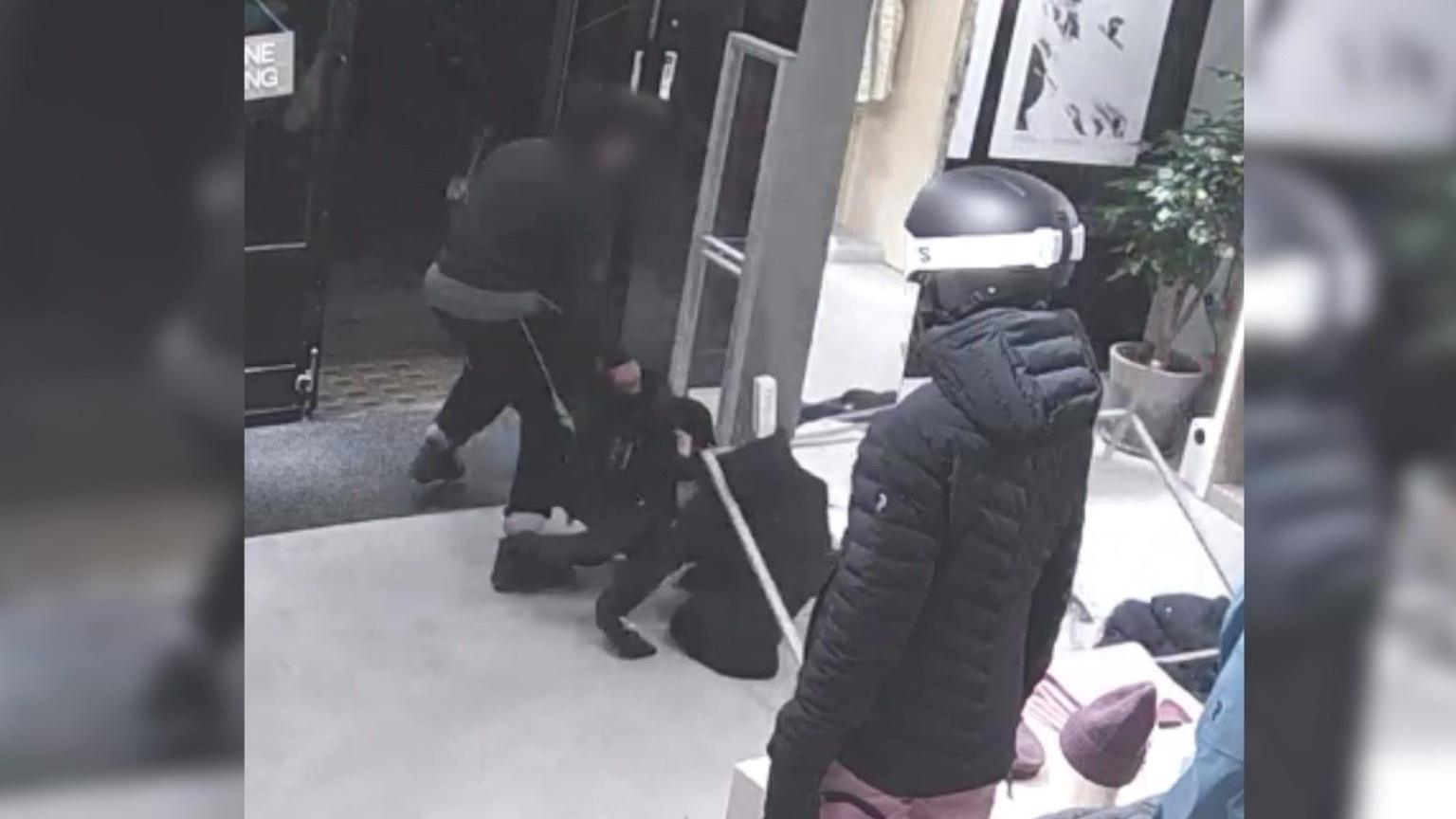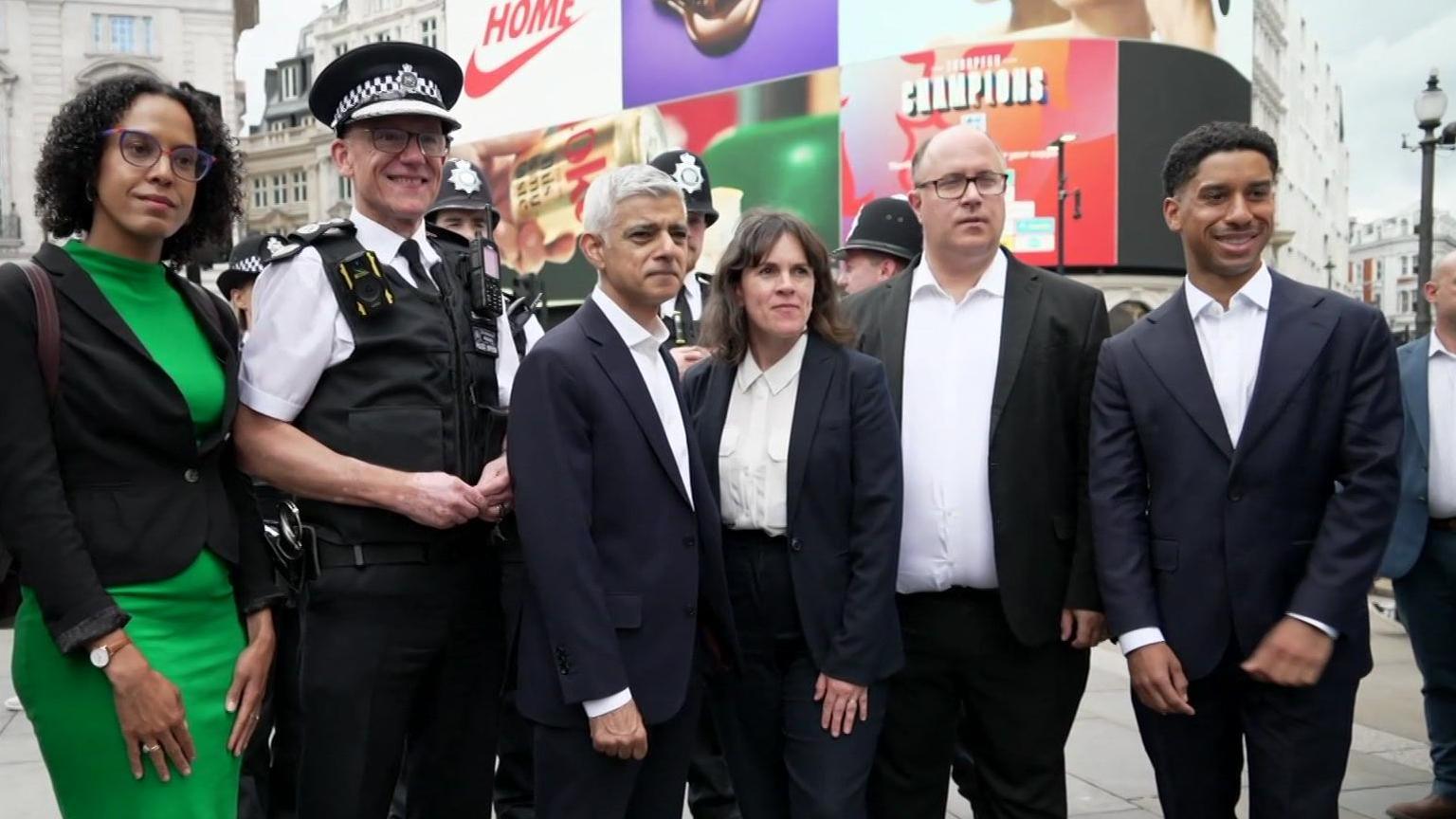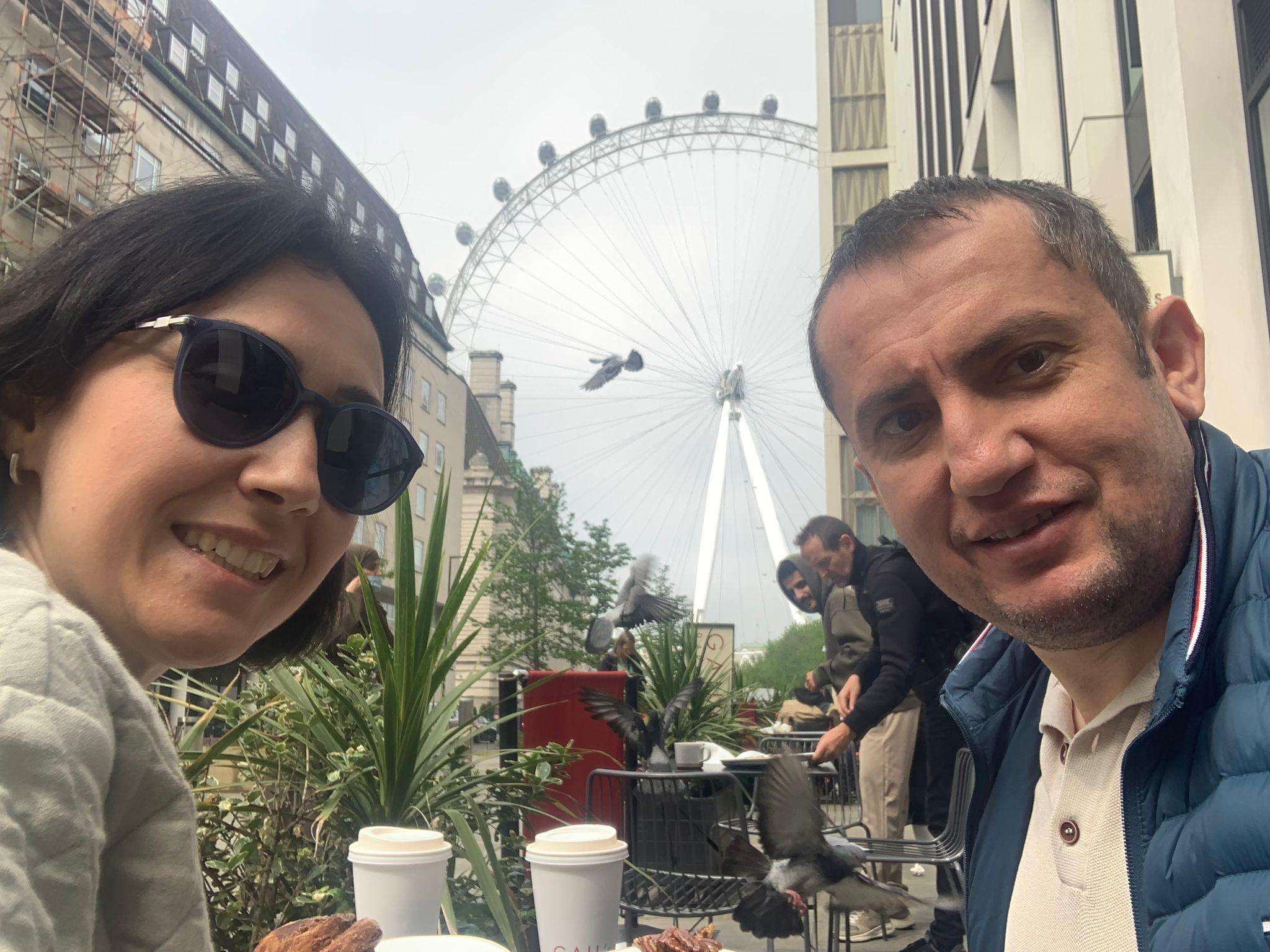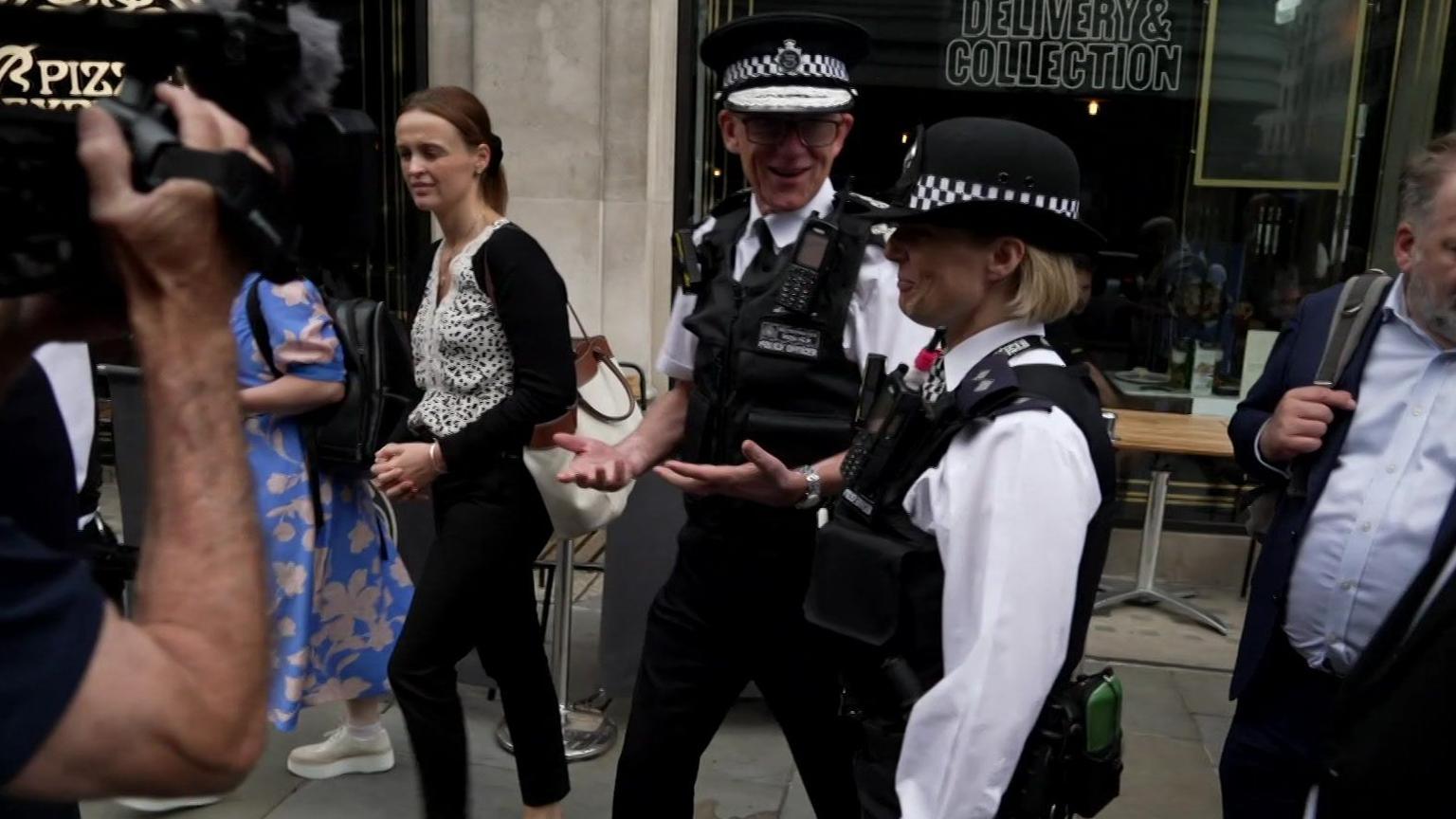Met promises to tackle West End crime hotspots

The Met Police has promised to tackle crimes such as shoplifting by boosting the number of officers policing the West End
- Published
The Metropolitan Police says it is doubling the number of officers tackling crime in the West End, while also doubling its use of live facial recognition technology.
It comes as the force restructures its teams, preparing to lose 1,700 officers and staff.
The Commissioner, Sir Mark Rowley, said some people may "raise eyebrows" over the "tough choices" made due to budget pressures, "but that's all because we're focused on what matters most to Londoners."
Up to 80 more officers are joining the West End team to focus on crimes such as violence against women and girls, shoplifting and phone robbery, while the dedicated Royal Parks and schools officers will be cut.
'Need to get cleverer'
Some 90 officers are joining neighbourhood teams that cover six hotspots for robbery and theft: Brixton, Kingston, Ealing, Finsbury Park, Southwark and Spitalfields.
The commissioner warned in April the force was facing a £260m budget shortfall, but the Met said an additional £32m from City Hall and the Home Office meant it had been able to reduce the impact of some of the cuts.

During a visit to Piccadilly Circus alongside the mayor, Met Police Commissioner Sir Mark Rowley announced West End policing teams would double in size
The latest data from the Office for National Statistics, external found knife enabled crime recorded by the Met rose by 9% (16,297 offences) in the year ending March 2025 compared to the previous year.
Shoplifting rose by 54% and theft from the person by 28%, although violence with injury fell by 18% and homicide by 9%.
"We've had big reductions in violence; you're less likely to be injured in violence in London than any of the UK cities," said Sir Mark.
"We've made massive progress, we want to do more, but we need to get cleverer, because we're a smaller organisation."

Kemal from Surrey was with his wife in October visiting some of the tourist attractions central London has to offer when his phone was stolen
Kemal from Surrey contacted the BBC after his phone was stolen during a visit to London in October.
He said he'd been taking a photo of Big Ben, when his phone was snatched by someone on an e-bike.
"I called the police straight away from my wife's phone and they created a crime number for me, and then closed the case straight away.
"I don't think the police did enough to solve the issue."
He said he now visits London less frequently, and that his friends who live abroad also have a negative perception of the capital from clips they have seen of phone thefts on social media.
"When they want to visit London, the first thing they ask me is about the security issues."
Met to cut 1,700 staff to plug £260m 'black hole'
- Published2 April
"You can see why anybody in that moment feels shaken up," said the commissioner, when I asked him about Kemal's experience. "That's why we're focusing so hard on mobile phone robberies."
He said they were solving increasing number of phone robberies, including sometimes using "contentious tactics", pursuing and knocking suspects off bikes.
Fifty extra officers are being moved to the Flying Squad under restructuring plans, which Sir Mark said would help deal with serious organised criminals targeting shops.
The Met also announced live facial recognition technology would now be used up to 10 times a week across five days, up from the current four times a week across two days.
It's also set to be used at Notting Hill Carnival for the first time in August.

The Met Commissioner said the force was having to make "tough choices" and prioritising crimes that "matter to Londoners"
The Mayor of London, Sir Sadiq Khan, said he recognised that Londoners wanted to see more "bobbies on the beat" and acknowledged he was concerned about "reputational damage" to the West End from crime.
He blamed falling officer numbers on years of austerity under the previous Conservative government.
"Thanks to record funding from City Hall, the West End will see a 50% increase in the number of police officers on the beat and an additional 90 police officers working in new or enhanced town centre teams in hotspot areas."
'Incredibly concerning'
Last month, retailers warned flagship high streets like Oxford Street were at risk without urgent national action on crime.
Ros Morgan, chief executive of the Heart of London Business Alliance, welcomed the extra officers on the beat but said there had been "some frustration" over how long it has taken.
She said they had introduced private security teams in response to concerns, and that the partnership between them and the police was working well.
"With the additional police coming through, that partnership's only going to get better and our businesses will be really happy that this has finally happened, because we've been calling for it for quite some time."
Charlie Whelton, from the civil rights group Liberty, said it was "incredibly concerning" to see an expansion of facial recognition technology.
"Any tech which has the potential to infringe on our rights in the way scanning and identifying millions of people does needs to have robust safeguards around its use, including ensuring that proper independent oversight is in place."
He called on the government to introduce new laws on regulating its use.
Earlier this month the Met Police revealed it had made 1,000 arrests using live facial recognition to date, of which 773 had led to charge or caution.
Sir Mark insisted the technology is responsibly used and had been assessed as being accurate and fair by the National Physical Laboratory.
He said: "There are a lot of wanted offenders out there, this helps us round them up.
"This is really powerful stuff that makes you safer."
Listen to the best of BBC Radio London on Sounds and follow BBC London on Facebook, external, X, external and Instagram, external. Send your story ideas to hello.bbclondon@bbc.co.uk, external